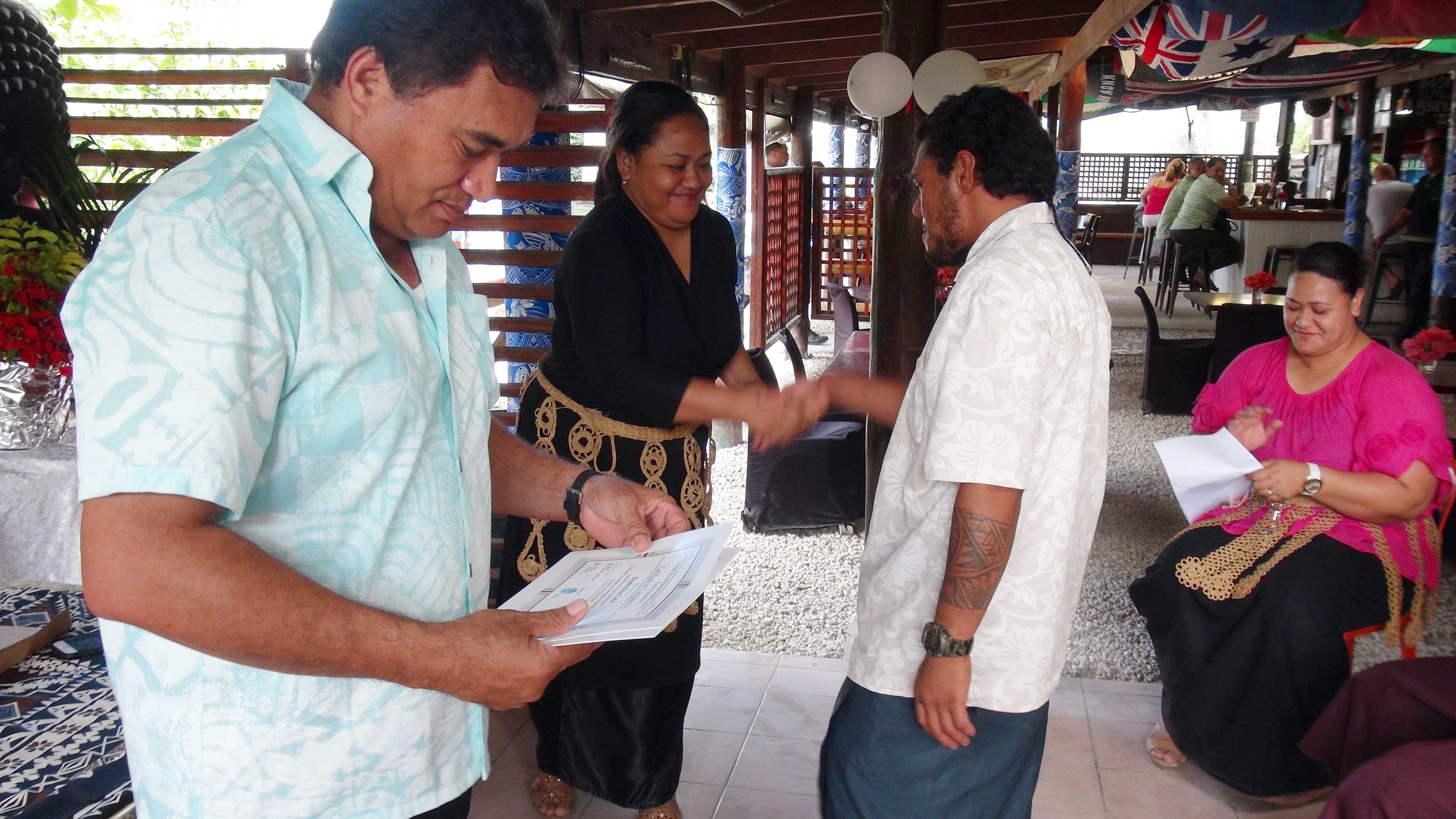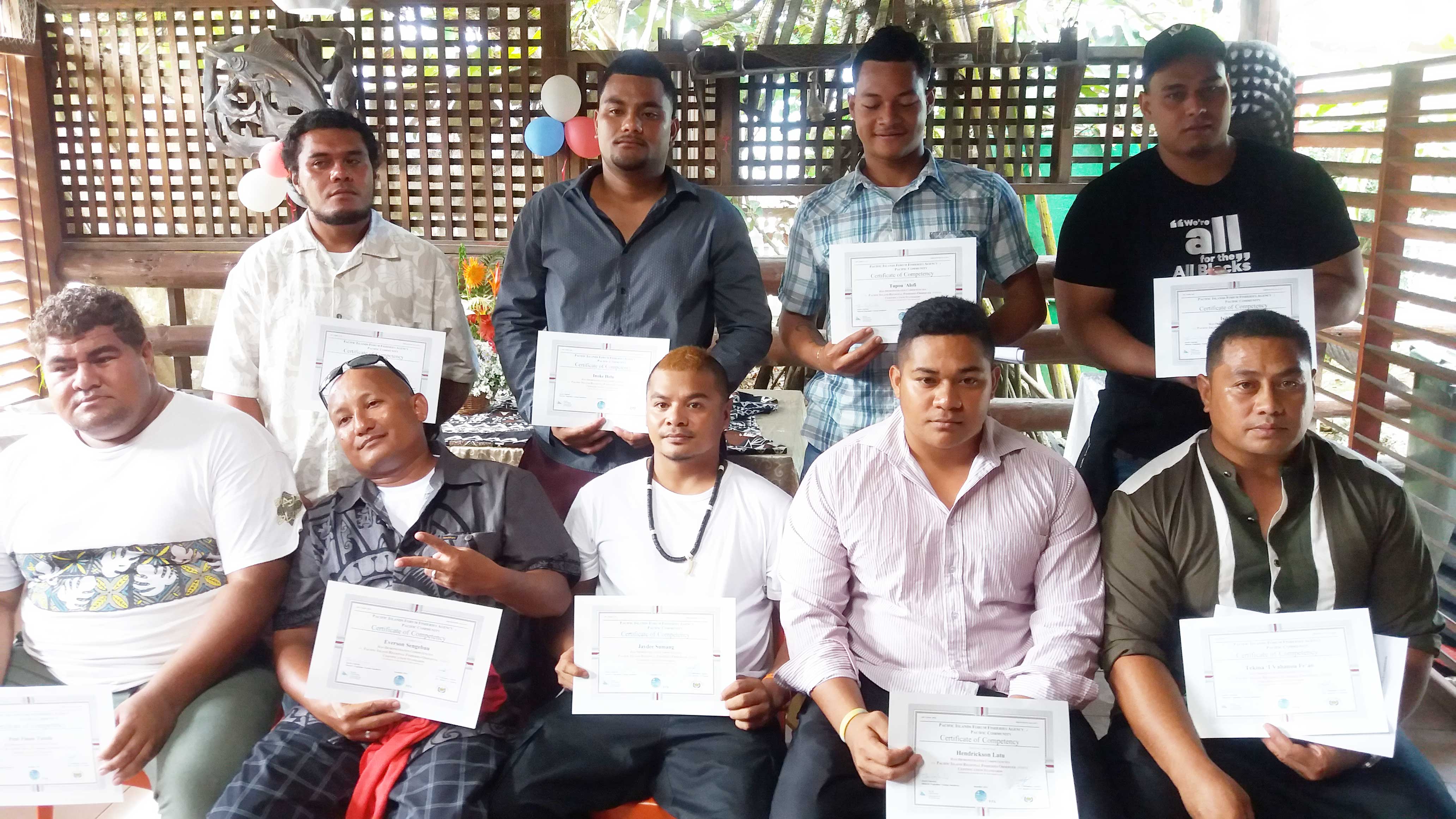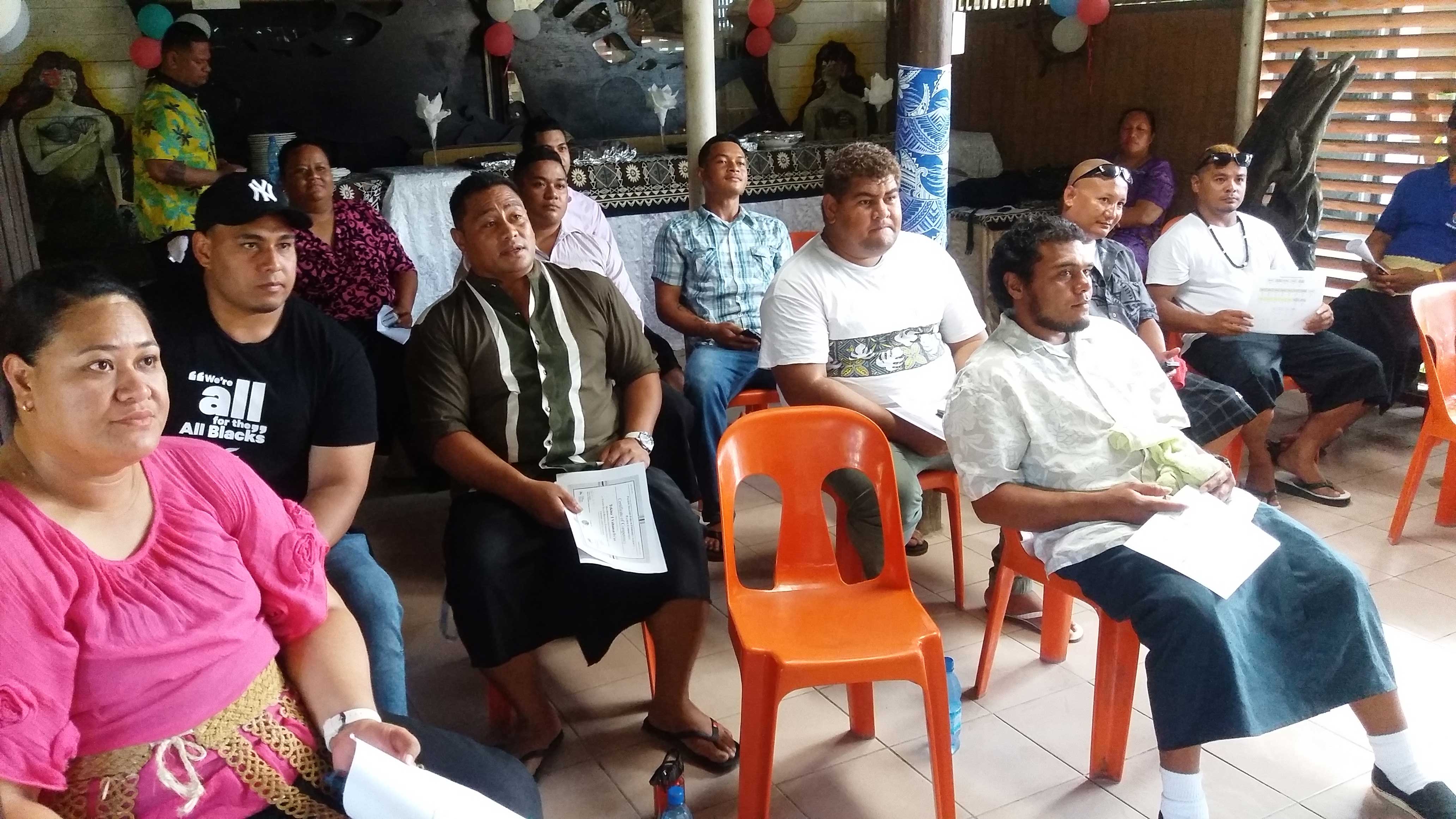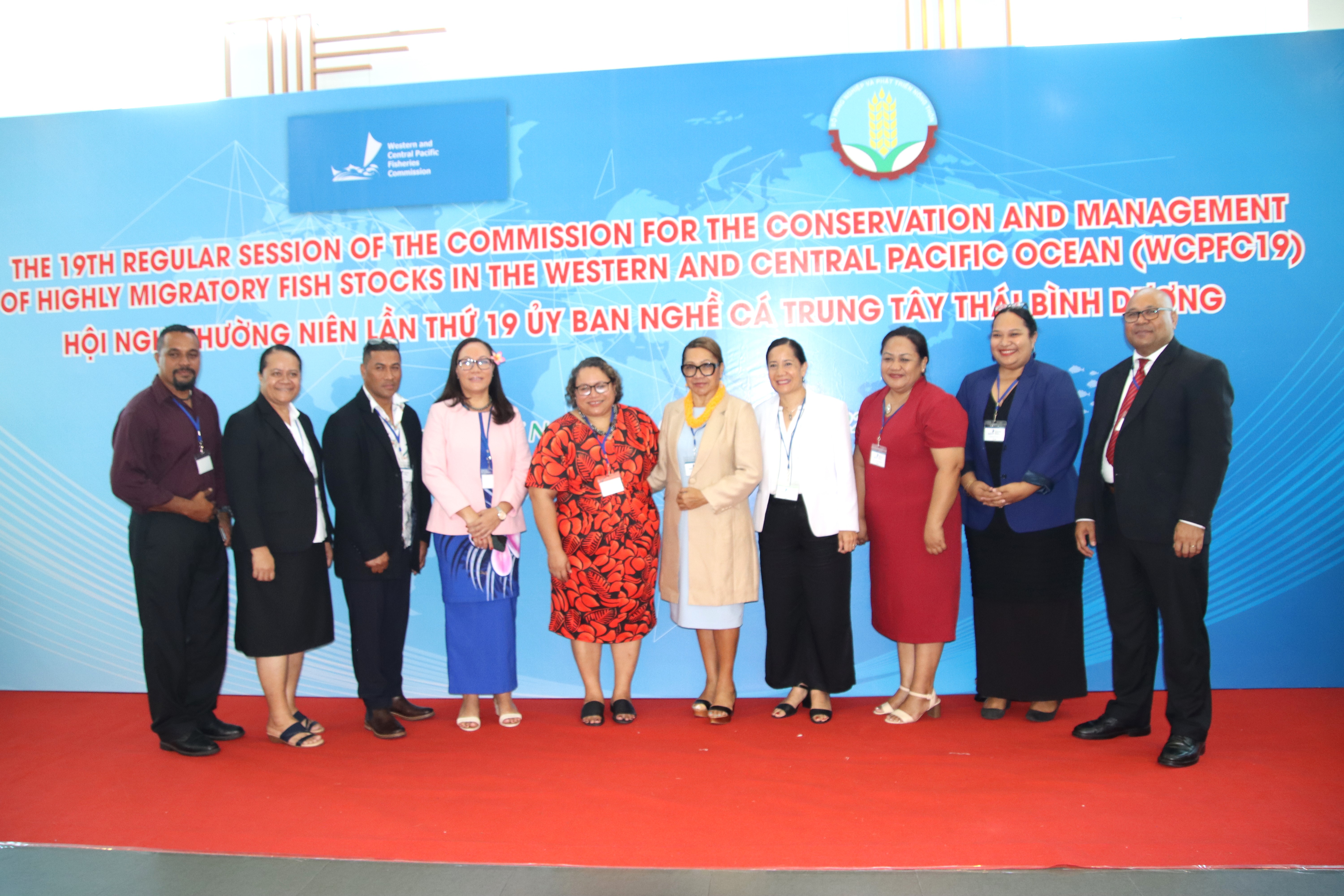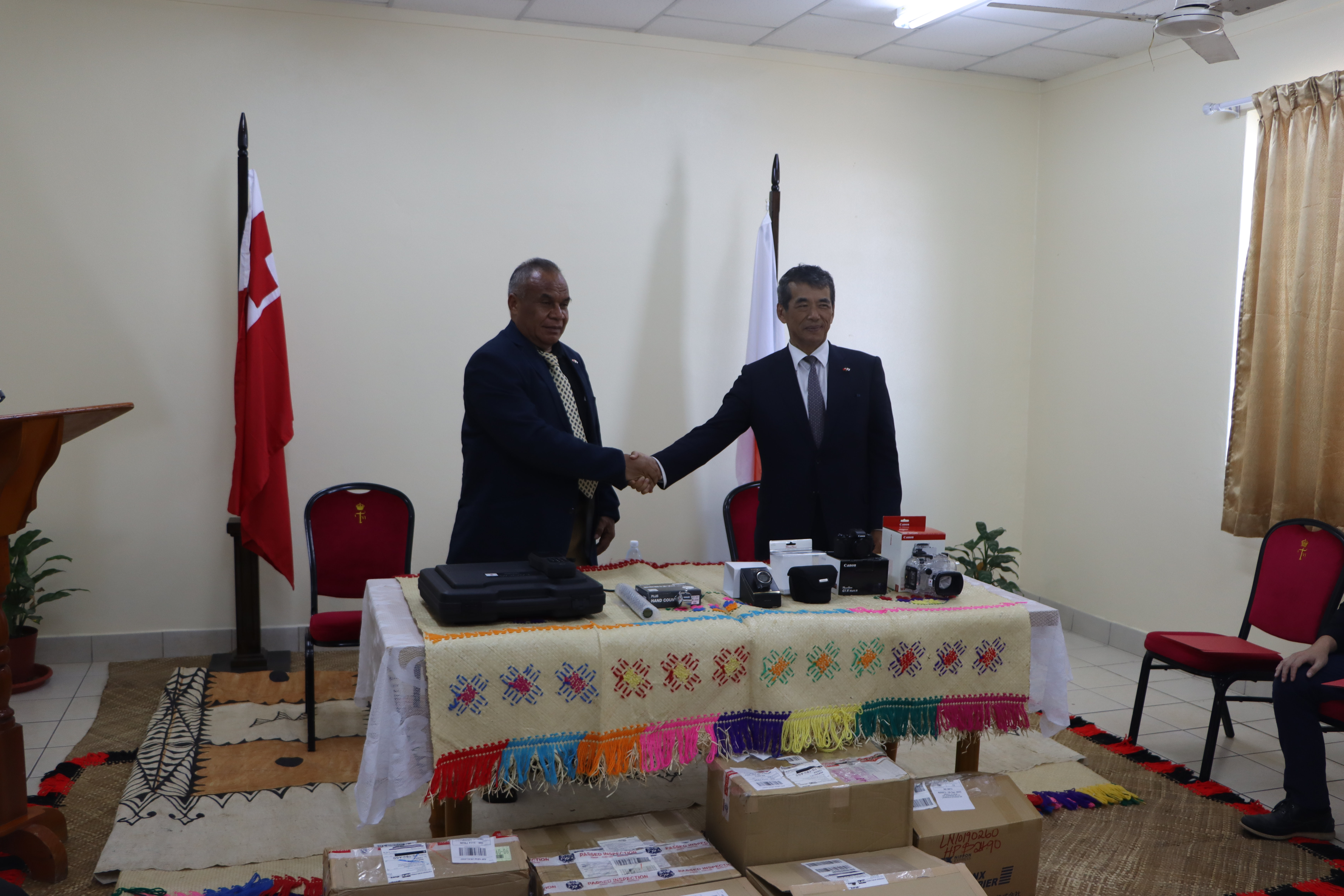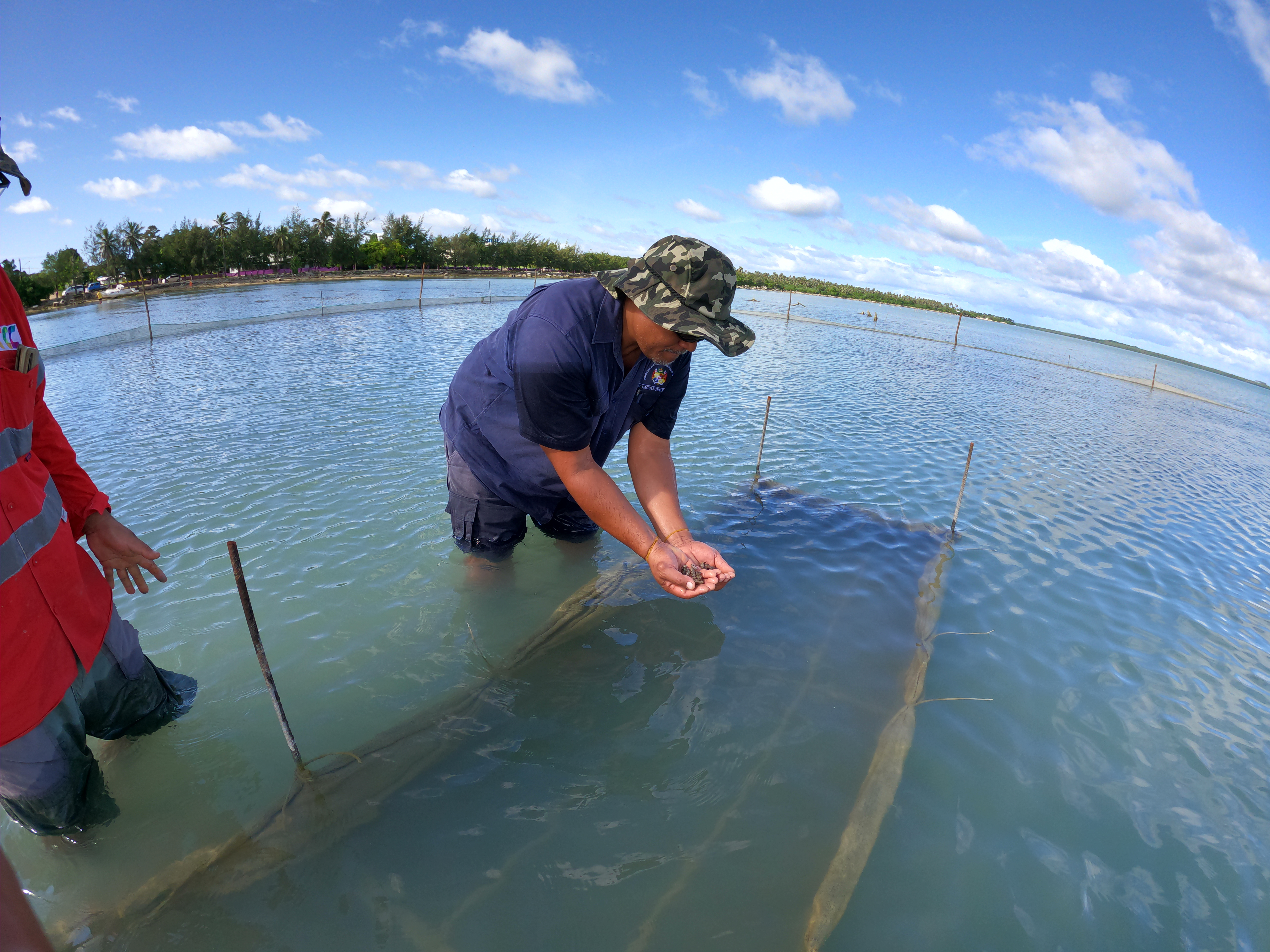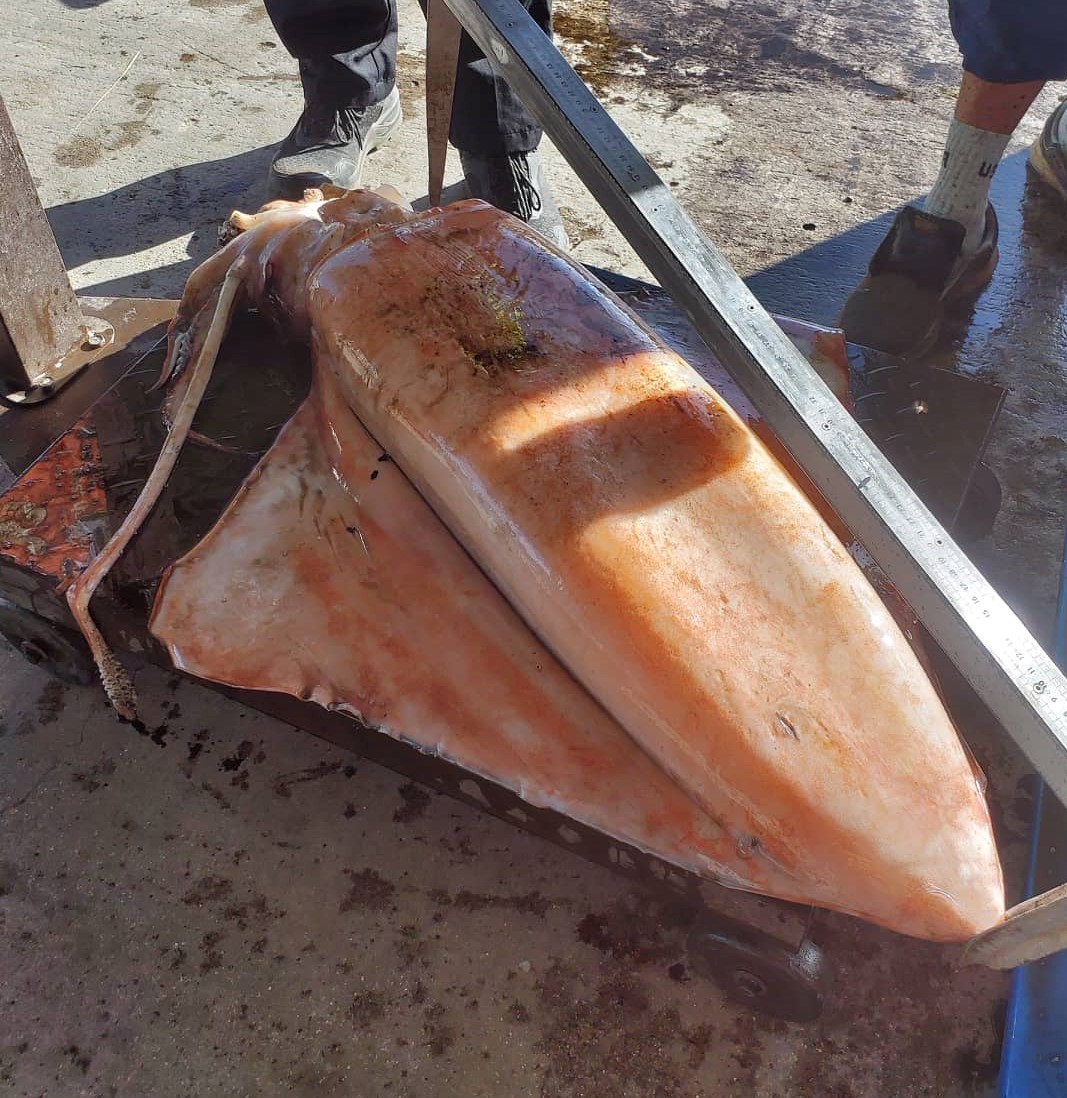Ministry of Fisheries, Sopu, Tonga, 15 November - 2 December 2016
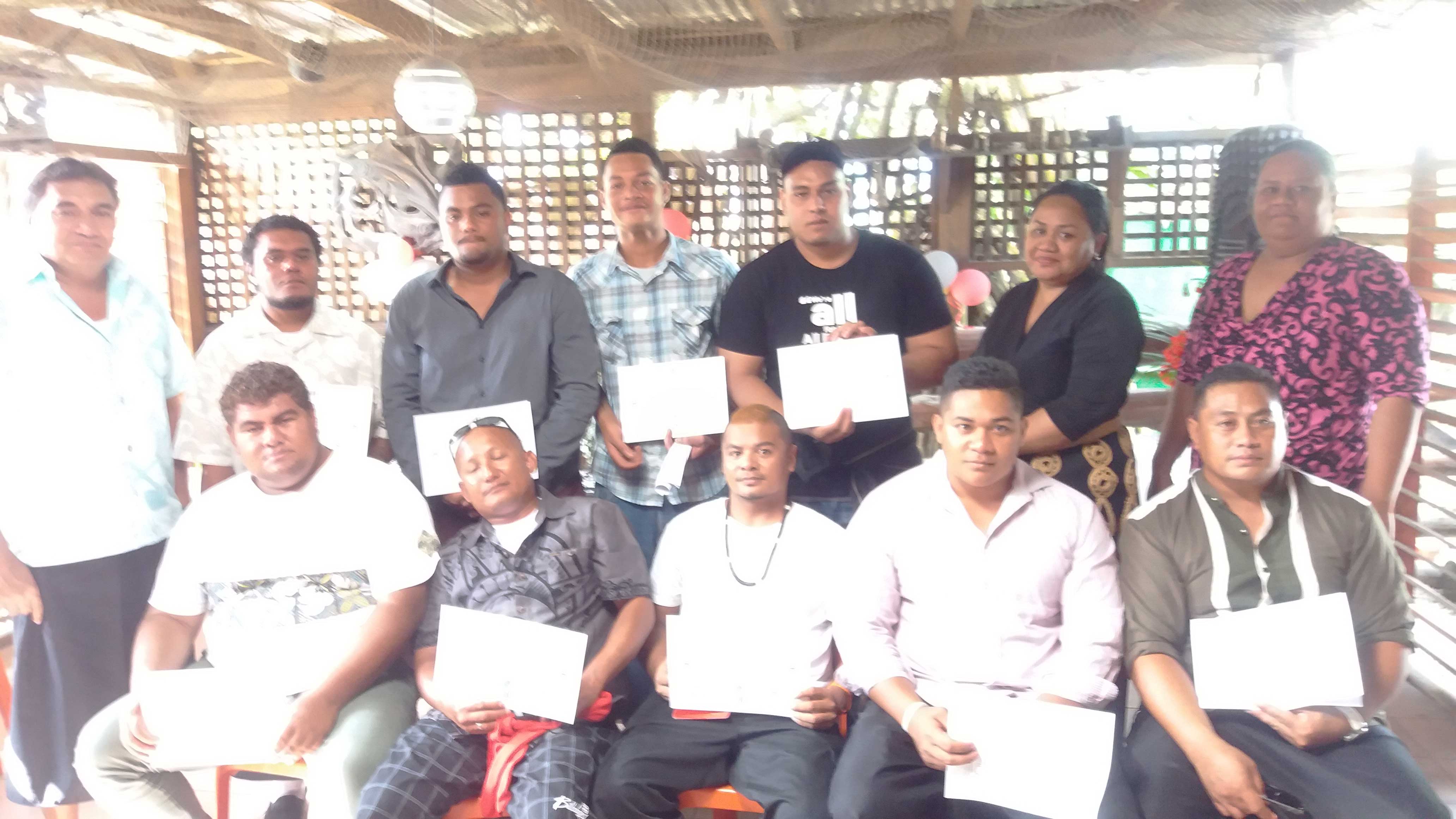
Tonga Ministry of Fisheries completed a Fisheries Observer training on Friday, 2 December, at the Ministry of Fisheries, Sopu, Tonga. The training was conducted by Mr Siosifa Fukofuka, Observer Programme Training Coordinator at the Pacific Community (SPC).
There were nine observer trainees: seven from Tonga and two from the Republic of Palau. These observer trainees were certified under PIRFO certification standards developed by SPC and Pacific Islands Forum Fisheries Agency (FFA), and endorsed in 2008 by the Forum Fisheries Committee 67. This qualification allows the observer trainees to board tuna longline vessels that fish in any SPC and FFA Pacific Island member countries’ waters, including Tonga.
There are arrangements for further training on the other purse seine gear, after these observers have covered sea days and gained experience observing on tuna longline gear.
The information and data collected by these observers will be important in monitoring, managing and preserving tuna, such as bigeye, yellowfin and albacore, and other species caught during fishing. Observer reports are independent from what the vessel records. Observers record landed and discarded target species, by-catches species, protected species, fishing gear and operation, marine pollution, basic navigation, vessel report, vessel sightings, pelagic species identification and sea birds mitigation.
Currently, there are 10 Tongan observers employed by the Ministry of Fisheries on a contract basis. There are almost 900 Fisheries observers currently employed by Pacific Island countries’ national programmes. A large number of these observers are employed by FFA under the United States multilateral treaty with certain Pacific Island countries, including Tonga and Palau, and the Parties to the Nauru Agreement (PNA), the Federated States of Micronesia Arrangements (FSMA) Observer Programme.
The training was funded by the Tonga Ministry of Fisheries, SPC and Japan Trust Fund, managed by the Western and Central Pacific Fisheries Commission (WCPFC).
